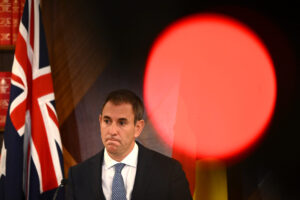
While public school funding lags, principals of private schools are paid up to four times their state system counterparts.
The average pay for the principal of an elite private school in Sydney is about $687,000 a year. At least four get a salary and benefits package worth over $900,000, and one of those is on over $1 million a year.
It took the leak of confidential data to find this out because, despite being heavily subsidised, private schools in most parts of Australia don’t have to tell anyone what they pay their headmasters. The Australian Charities and Not-for-profits Commission’s reporting requirements come close, but they don’t require schools to say how much they pay individual staff in particular positions.
Even if $600,000 is only a rough estimate, it’s a lot more than the principals of NSW’s public schools get. Their salaries – which are published by the NSW Government – range between $140,000 and $216,000 a year. Seek puts the average pay for a school principal in Australia at between $165,000 and $185,000 a year.
This pay gap is symptomatic of the widening inequality between the ‘haves’ and the ‘have nots’ of our education system.
NSW Education Review
The NSW Government is poised to release the results of its review into Section 83C of the Education Act 1990 (NSW), which outlines what private schools can and cannot do if they want to operate as a not-for-profit organisation (which most do). According to the Act, as a condition of receiving public money, all pay packages “must be required for the operation of the school, be at no more than reasonable market value, and not be in any other way unreasonable.”
How can $600,000 be considered ‘reasonable market value’ when the public school principals they ‘compete’ with do the same job at the same kind of organisation for much less?
The only way these exorbitant salaries could be considered ‘reasonable market value’ is if private schools existed as a ‘market’ separate from public schools. But, if that were the case, then education would be a for-profit private market, and there wouldn’t be any reason to give private schools hundreds of millions of dollars in public money, right?
The myth of market forces
If education is a market, and elite private schools are merely providing a better product that costs more (including executive salaries), then their educational results should be better. But it’s not that simple.
Last year, many private schools that charge relatively low fees performed the same or better in the HSC than schools that charged fees above $20,000. The HSC ranking of two public schools, which can’t pay their principals as much as private schools, jumped 200 places.
A quick look overseas also shows that salaries are not related to educational outcomes. Finland has a world-renowned public education system with almost no private schools. Finland’s principals earn less than their counterparts in Australian public schools, and Finland spends less per secondary school student compared to Australia. Yet Finland consistently has some of the best educational outcomes in the world.
At the other end of the scale, Luxembourg pays the heads of its public schools more than any other nation in the OECD, but it ranks just 31st in educational attainment (out of 41). Clearly, exorbitant salaries and school fees do not translate into educational outcomes, which makes any claim that they are “required for the operation of the school” difficult to justify.
Transparency needed
The NSW Education Act says that private schools are granted public funding “for the benefit of the school.” If private schools are to continue receiving tax-payer money, they should have to disclose how much they pay their principals.
The NSW Government could adopt the policy of the Queensland Government, which requires private schools to table annual reports, including details of the pay packages paid to teachers, in the state parliament. New York State has a similar policy, with the pay received by principals included in tax filings. Even in the United Kingdom, well-known for its elite private school culture, the salary bands of high-earning staff must be reported as a condition of maintaining tax-deductible status.
Incubators of inequality
What kind of message does the huge pay gap between public and private school principals send to school children? That, if they go to a public school, their principal isn’t as good or doesn’t work as hard? Or, if they’re at a private school, the principal couldn’t be very good unless they earn magnitudes more than anyone else.
It’s also worth asking why it takes three times as much to attract a principal to head up a private school in the first place.
What’s happening in that part of the ‘market’ that makes it so difficult or unattractive that such a high salary is needed to attract a principal? Maybe it’s the reports of sexual assault, bullying, and toxic workplace culture that might be scandals if only they weren’t so common. Or maybe the fish rots from the head, and we should hold these over-paid executives to account.
Paying the principal of a private school $600,000 isn’t about education; it’s about distributing profit, underwritten by the taxpayer, to people who oversee these incubators of inequality.
Between the Lines Newsletter
The biggest stories and the best analysis from the team at the Australia Institute, delivered to your inbox every fortnight.
You might also like
Australian high schools the most expensive in the world – new research
As the 2026 school year gets underway, new research by The Australia Institute reveals that Australia is the most expensive place in the developed world for families to send a child to high school.
Highway to hell? Reversing the decline of Australian music
These days, Aussie music is falling out of the charts, leaving local acts wondering if they’ll ever see your face again.
Tax reform isn’t hard – slug multinationals and subsidise the things we want more of
Taxes are the price we pay for civilisation, but they are also a tool we can use to change the shape of our economy, not just its size.




